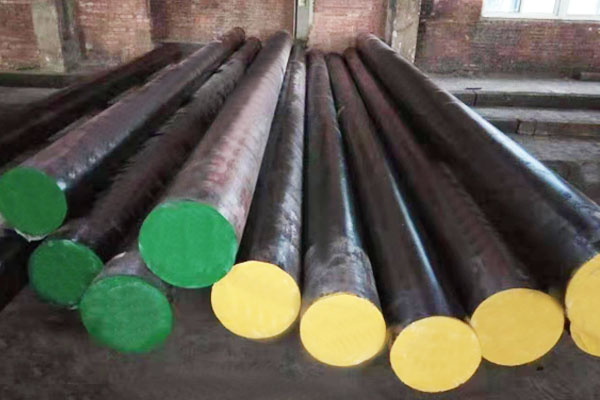

锻造是金属塑性加工的重要方法之一。锻造的主要目的是:成形和改性(机械性能和内部组织的改善)。其中后者是其他工艺方法难以实现的,另外锻造生产还具有节约金属、生产效率高、灵活性大等优点。
通过锻造能使铸造组织中的疏松、气孔压实,把粗大的铸造组织(树枝状晶粒)击碎成细小的晶粒,并形成纤维组织。当纤维组织沿着零件轮廓合理地分布时,能提高零件的机械性能。因而,锻制成的零件强度高,可承受更大的冲击载荷。在承受同样大小冲击载荷的情况下,锻制零件尺寸可以减小,即节省了金属。例如,美国用315MN 水压机模锻F-102 歼272 个零件和3200 个螺钉,使飞机质量减轻了击机上的整体大梁,取代了45.5~54.5kg。
自由锻件哪家好,就找唐山盛通锻造有限公司。
Forging is one of the important methods of metal plastic processing. The main purpose of forging is: forming and modification (mechanical properties and improvement of internal structure). The latter is difficult to achieve by other process methods, and the forging production also has the advantages of saving metal, high production efficiency, and great flexibility.
By forging, the looseness and pores in the cast structure can be compacted, and the coarse cast structure (dendritic grains) is crushed into fine crystal grains, and the fibrous structure is formed. When the fiber structure is reasonably distributed along the contour of the part, the mechanical properties of the part can be improved. Thus, the forged parts are high in strength and can withstand greater impact loads. With the same magnitude of impact load, the size of the forged part can be reduced, ie metal is saved. For example, in the United States, 315 MN hydraulic presses were used to die for F-102 歼 272 parts and 3,200 screws, which reduced the overall quality of the aircraft and replaced the overall girders on the aircraft, replacing 45.5~54.5kg.
